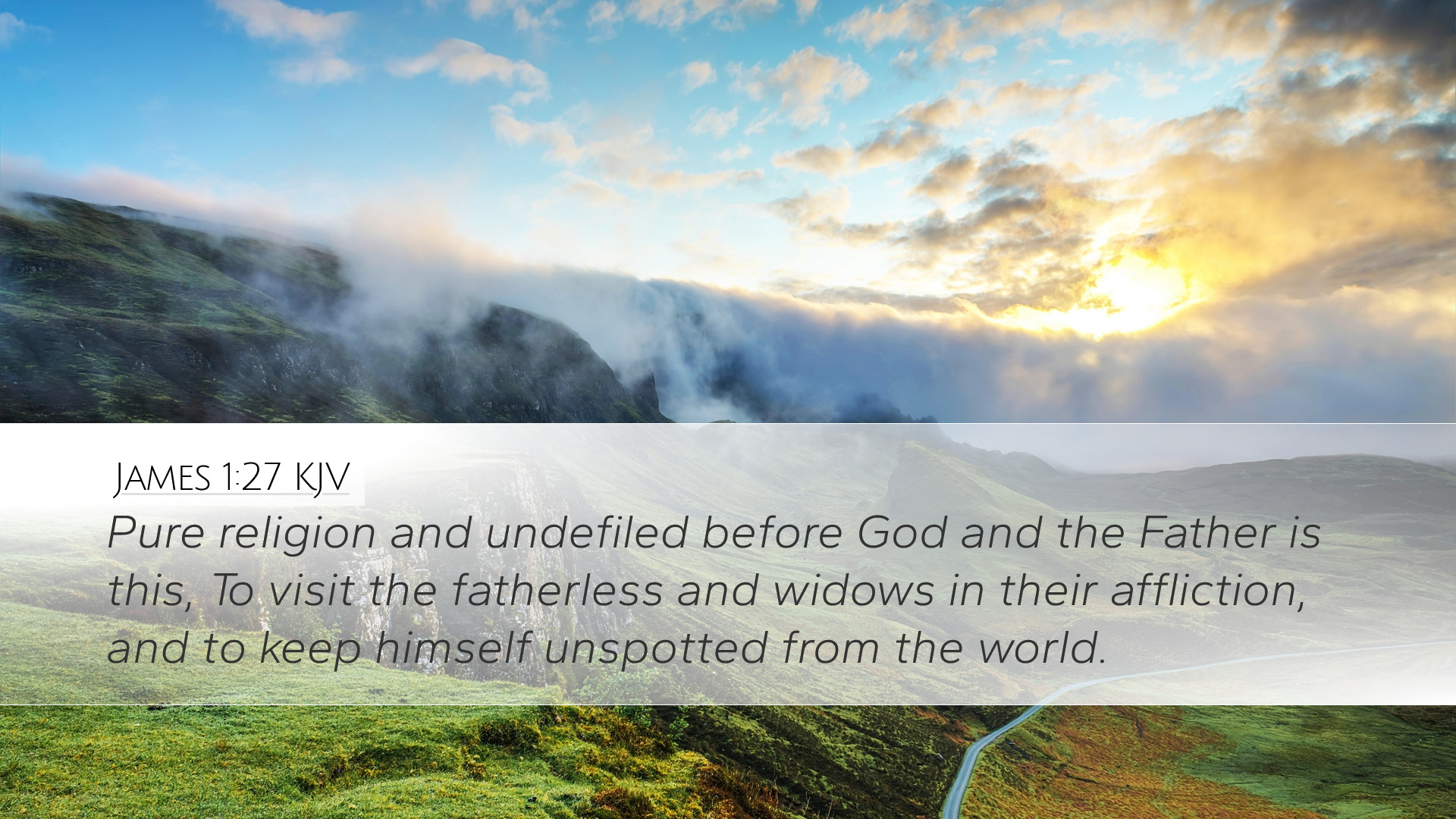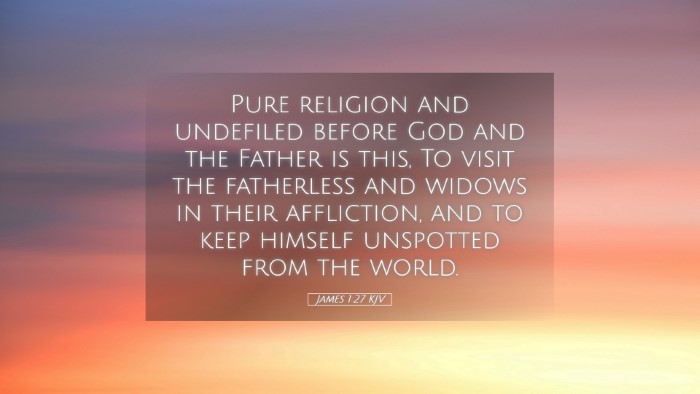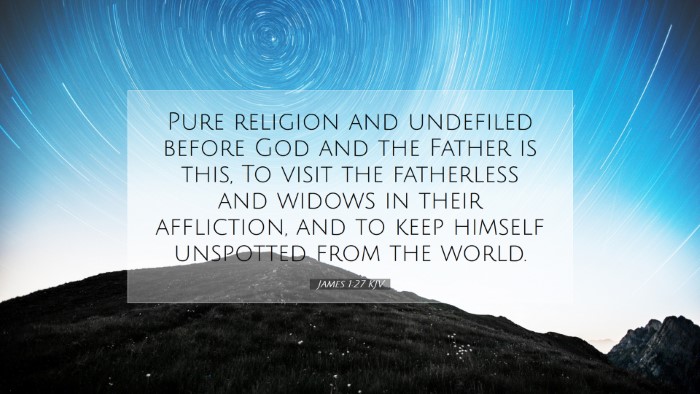Old Testament
Genesis Exodus Leviticus Numbers Deuteronomy Joshua Judges Ruth 1 Samuel 2 Samuel 1 Kings 2 Kings 1 Chronicles 2 Chronicles Ezra Nehemiah Esther Job Psalms Proverbs Ecclesiastes Song of Solomon Isaiah Jeremiah Lamentations Ezekiel Daniel Hosea Joel Amos Obadiah Jonah Micah Nahum Habakkuk Zephaniah Haggai Zechariah MalachiJames 1:27
James 1:27 KJV
Pure religion and undefiled before God and the Father is this, To visit the fatherless and widows in their affliction, and to keep himself unspotted from the world.
James 1:27 Bible Commentary
Commentary on James 1:27
James 1:27 states: "Pure religion and undefiled before God and the Father is this, To visit the fatherless and widows in their affliction, and to keep himself unspotted from the world."
Introduction
In this verse, the Apostle James provides a concise definition of true religion, emphasizing both action and moral purity. The significance of this verse is profound, offering insight into the character of God and the expectations placed upon believers. This commentary aims to elucidate the multifaceted nature of true religion, as drawn from various public domain commentaries.
The Essence of Religion
James begins by asserting that pure religion is characterized by specific actions and moral integrity. This definition challenges contemporary understandings of religion, which often focus on ritualistic practices rather than genuine care and moral purity.
- Matthew Henry: Henry emphasizes that true religion is not merely a matter of formality or tradition; it is deeply rooted in compassion and tangible acts of kindness. He affirms that true worship must translate into practical love for those in need, epitomizing the teachings of Christ.
- Albert Barnes: Barnes elaborates on the term "undefiled," indicating that it refers to religion not tainted by human systems or innovations. He insists that true worship remains pure when it is focused on God’s commands and prompted by the love of Christ.
- Adam Clarke: Clarke describes genuine religion as a profound commitment to uphold justice and mercy. He notes that this involves not only religious observance but also a commitment to the ethical treatment of others, specifically those marginalized in society.
Visiting the Fatherless and the Widows
James identifies two specific groups—the fatherless and widows—who represent the vulnerable. This highlights the social responsibility that accompanies true faith.
- Matthew Henry: He notes that these vulnerable groups symbolize those who are often overlooked by society. By addressing their needs, believers demonstrate their faith not merely through words, but through actions that reflect God’s mercy and kindness.
- Albert Barnes: Barnes explains that to "visit" implies not only a physical presence but also an active engagement in the lives of the needy, providing both emotional support and practical assistance.
- Adam Clarke: Clarke underscores the moral imperative of these actions, suggesting that attending to the fatherless and widows is not only an act of charity but a manifestation of a believer's devotion to God. It represents God's heart for justice and compassion.
Keeping Unspotted from the World
The latter part of the verse presents a call to moral integrity and separation from worldly influences. This dual focus ensures that believers not only engage with society but also maintain their distinctiveness as God's representatives.
- Matthew Henry: He stresses the importance of holy living in conjunction with social action. Henry warns against being conformed to the world, highlighting that a true disciple must embody the principles of God’s kingdom while actively serving others.
- Albert Barnes: Barnes discusses the importance of personal holiness, arguing that to be "unspotted" reflects a commitment to purity in thought and action. This purity serves as a witness to the transformative power of faith, enabling believers to effectively minister to others.
- Adam Clarke: Clarke points out that the challenge lies in maintaining a balance between involvement in the world and adherence to God's standards. He asserts that believers are called to influence society without succumbing to its corrupting influences.
Conclusion
James 1:27 encapsulates a holistic view of true religion, asking believers to embody compassion while living a life of moral rectitude. The teachings of Henry, Barnes, and Clarke converge to remind us that faith is inherently tied to action and personal integrity. The call to serve the least of these through acts of kindness and to maintain a pure heart and mind is as relevant today as it was in the early church.
Ultimately, this verse serves as a clarion call for believers to reflect the character of God in their actions and interactions, embodying the very essence of the Christian faith as articulated through the life and teachings of Jesus Christ.


